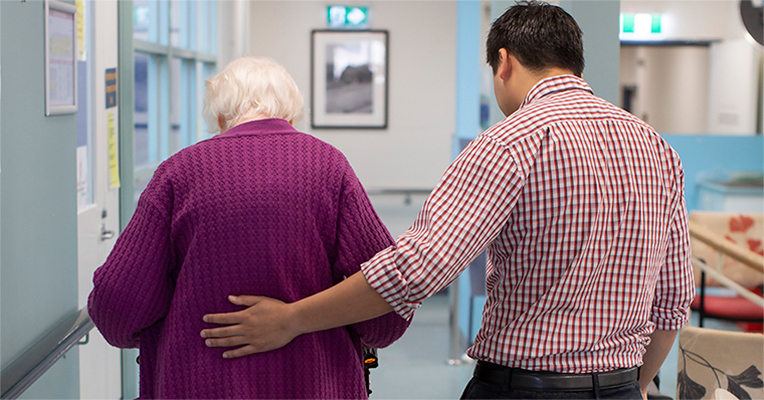World Delirium Awareness Day
13/03/2019

During World Delirium Awareness Day, Cabrini is helping to spread awareness of delirium and support patients who have experienced the condition.
Delirium is a change in a person’s mental state and includes warning signs such as inattention, as well as differences in attention, cognition and perception. It is a medical emergency that requires prompt treatment. If not addressed early, it can lead to severe adverse outcomes for patients.
Delirium is something that one in five older patients experience while admitted to hospital.
Neurology and Cognition Clinical Support Nurse Alice Wandke said patients at Cabrini were regularly screened for delirium and those at a high risk of developing the condition were monitored.
“While little is understood about what causes delirium, pathology tests can help to identify and diagnose the condition,” Ms Wandke said.
“It mainly affects people over the age of 65 and an episode of delirium is usually short-lived but can last up to six months in some cases. Some people may never return to their original state following an episode of delirium.”
Unfortunately, delirium is often misdiagnosed or is not detected or not identified in hospital, which is why it is critical to speak to someone if you suspect yourself or a family member is having a delirium episode.
Delirium can cause changes to a person’s temperament, including aggression, confusion or agitation, which can be distressing for both the person involved and their loved ones.
Ms Wandke said there were many underlying causes of delirium.
“The causes of delirium can be complex, sometimes there is one cause but in other cases multiple factors can contribute to an episode of delirium. Common causes include infection, severe pain and certain types of medication,” she said.
“Treating the underlying cause of delirium is the first step. Once we work out what is causing the delirium, we can treat and monitor the associated delirium.”
During World Delirium Awareness Day, Cabrini is encouraging people to be aware of the signs of delirium and to raise it with a health professional if you suspect a loved one might be suffering from delirium.
“Family members know their loved one better than anyone else, so if they think a family member is not acting like themselves they should raise this with a medical professional,” Ms Wandke said.
“The important thing is to be aware of your risk factors so that we can implement strategies and monitoring to avoid it escalating to or contributing to delirium.”
“Sleep deprivation can be a cause of delirium, as well as hearing and vision impairment. If these issues aren’t properly addressed, it can result in delirium. Being mindful of this and taking precautions such as wearing heading aids or glasses can help to prevent these issues escalating to delirium.”
Ms Wandke said everyone had a role to play in preventing delirium.
“Delirium is common in the hospital environment and we know patients with delirium are at greater risk of harm, so we need to join together every day to take actions to improve knowledge, detection and hospital care of patients with delirium,” she said.
“We all need to do our bit in improving the identification of delirium so that we can diagnose it and treat it early.
We don’t want it to be a taboo topic. We want people to be able to speak up about delirium so that we can address it.”
On World Delirium Awareness Day, Cabrini will have an information booth set up at Cabrini Malvern, with resources for staff, patients and their carers.